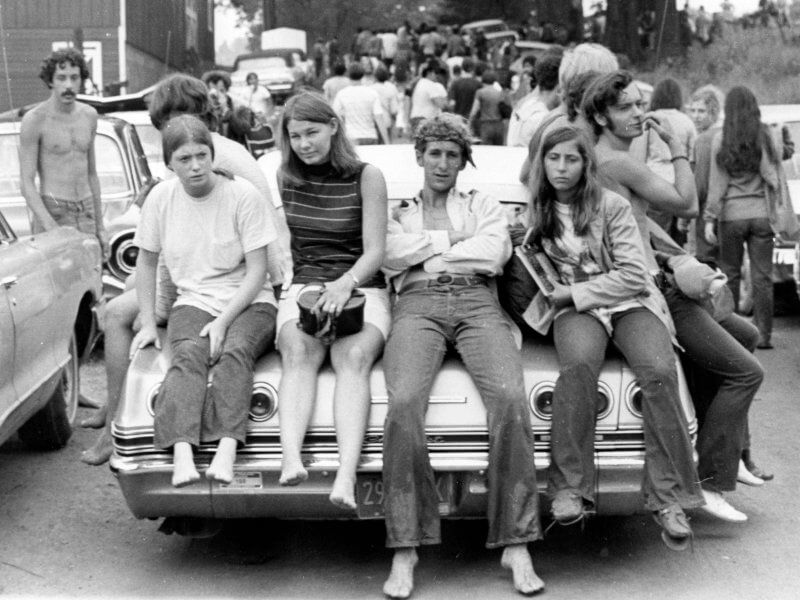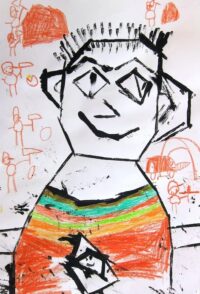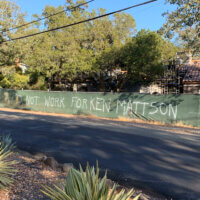Start of summer of 1968, the war in Vietnam was raging. A smaller war was raging in our little green house. My father, World War II vet, notorious underachiever, with a bad temper and me, a drug addled 16-year-old hippie war protester, were at odds. My poor mother was in a constant state of quaking fear. The cursing and screaming culminated in my father smacking me in the face, breaking my glasses and giving me a black eye.
I said, “I am leaving and not coming back.” Mom was hysterical and dad said, “Get the F out and who cares.”
I was gone the next day. Now, figure out where to crash and make some money. The area adjacent to the University of Minnesota, the West Bank, was a time capsule of past glories, now decayed and inhabited by hippies and down-and-outers.
A strange little building and business, the Band Box, had a” help wanted” sign in the window. It was a large metal cube with windows and rounded corners, open only in the mornings for breakfast.
I went in. A tall, emaciated, Native American man said, “Well Red, let me tell you about the job. You help me feed the guys every morning, help me cook and clean up and you get free food and minimum wage. How does that sound?”
I found a room and hitchhiked to the Band Box in the early morning hours six days a week.
Slim, who was obviously dying of emphysema (it was not COPD in 1968) and I, now known as Red, would relax on the back steps, he smoking his cigarettes and me a joint. Then the “guys,” who looked like hobos from the 1930’s, started coming in. They lived on what little they had in derelict rooming houses nearby. I took orders, Slim cooked, I served and cleaned up. They might leave a few quarters on the counter for me. After closing, Slim would cook us breakfast and we would sit in back, smoke and talk for a while each day.
As summer progressed, I gave no thought to the horror of an impending Minnesota winter or my aimless life. I dropped acid, did speed, smoked endless joints, ate Band Box food and talked about the meaning of life with Slim. Some nights with my best friends, Gina and Debs, we spun and twirled to psychedelic music at Dania Hall. Near the end of summer someone gave me a 4-way acid tab. I dropped the whole thing, rather than sharing. Though I liked being in an altered state, I didn’t like being in an altered state for an entire day and the next. I called Slim, I would not be in.
When I finally came down, my 21-year-old sister, Eileen, showed up, sent by my mom to convince me to come home and finish high school. If it had not been for a bad, endless acid trip, I might not have been convinced.
I returned home, somehow graduated while stoned. Went on to work more minimum wage jobs, got married, got divorced, got off drugs, landed a job as a part time union supermarket cashier and earned a BFA from the Minneapolis College of Art and Design.
You may ask, why is she telling this story? I ask, why in 1968 were the poor, marginal, the addicted, not living on the street or in cars? How did old men with so little, survive and not freeze when it was 20 below in Minneapolis? How were they able to afford food and a roof over their heads? In 56 years, how has our society changed?
I moved through life, learning from my mistakes, witnessing those around me with way more and way less than I had. Working at the supermarket, making $10 an hour, paying my way through school, luck had smiled on me for once. I cashed welfare checks, delivered groceries to the projects, cashiered, and stocked shelves, coolers and freezers. The owners of my store, who inherited it from their father, complained about how much they were paying us, while they snorted coke in the back room, drove Mercedes and bought mink coats for their girlfriends and mistresses.
Today the gulf between the haves and the have-nots is so wide that have-nots live on the streets and the haves wallow in far more excess luxury than in 1968. It was not about how hard you worked in 1968, and it is not now. It is about how our society has changed and how our social safety net has been shredded. I grew up in the crappy little green house with broke parents, got a union job, government grants and loans for education then, but today would that be possible?






Be First to Comment